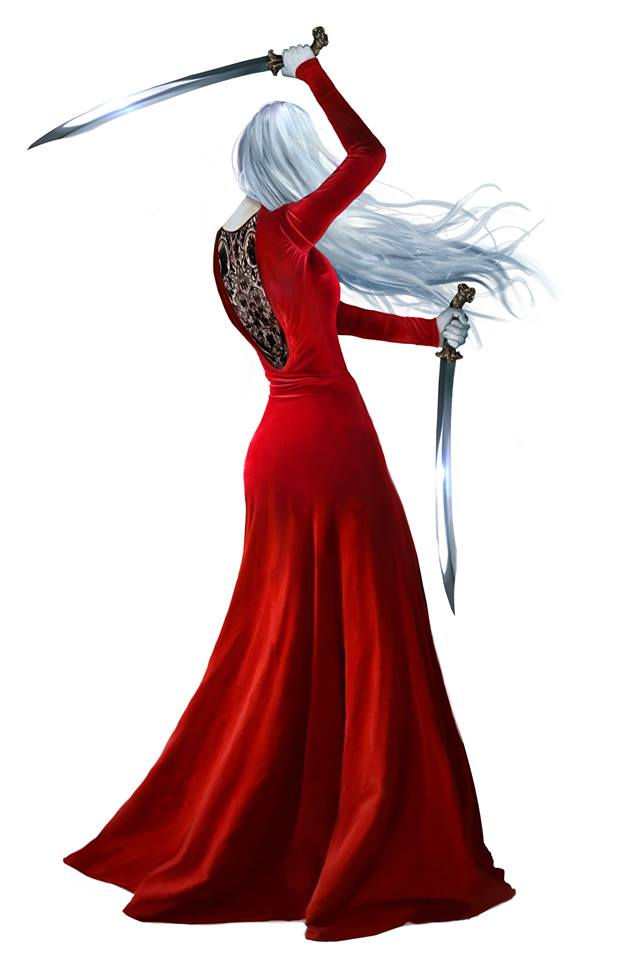5 Problems with Mental Health Depictions in Books
- Grace Kaye

- Oct 13, 2018
- 10 min read

This Wednesday was World Mental Health Day, a time that gave space to honesty and openness about topics surrounding mental health. Mental health is a huge deal to me, and I am an advocate for more education and discussion regarding the topic. I believe everyone should be educated on this issue, and that mental health shouldn’t be hidden and spoken about in whispers. Whether you struggle with an illness or if you’re just going through a rough patch, taking care of yourself is so incredibly important.
Personally, one way I do this is through reading (surprise!). However, as a book lover, I have a noticed a few problems in the way some books portray mental health. I thought now would be a great time to bitch about it. This blog post isn’t just to complain and spread negativity--I want readers to think critically about the way this topic is portrayed in the books they read, and I want writers to make intentional and conscious efforts to create better stories. Stories that are representative of people struggling with mental health. So without further ado, here’s the top five things that really irk me about the way some books nowadays portray mental health issues.
1. They Don’t.
Before you come at me with a grocery list of books that rep mental health, I want to clarify: they don’t include mental health rep unless that’s the whole point of the book. There’s something to be said about how most of the books I could think of with mental health rep are contemporary books that are thematically about mental health. These books are awesome and seriously needed. But I think there’s also something to be said about books that show characters struggling with mental illness even if it’s not the main intent of the plot.
As someone who reads and writes primarily YA SciFi/Fantasy, I don’t see positive or nuanced depictions of mental illness nearly enough in the books I read. I want characters living with a mental illness to embark on adventures the same way neurotypicals get to. For me, there’s nothing far-fetched about a character being heroic despite their mental illness. Writers, please consider it. It can only add realism, diversity, and interest to your world.
Things to avoid: vast descriptive worlds with...no mentally ill people. No one struggling with mood or stress. Characters going through crazy traumatic events and coming out largely unscathed. Mental health rep doesn’t have to be in-your-face but it’s not realistic to build a whole fantasy realm with a large cast of characters yet none of them struggle with mental health.
Book that does it right: The Hunger Games by Suzanne Collins. The older I get the more I appreciate how Collins approached Katniss’ mental health in this trilogy. As the books progress and Katniss is saddled with increasingly traumatic experiences and little support, she starts to develop Post Traumatic Stress Symptoms (PTSS). As someone who has studied trauma extensively, it’s clear to me that Collins did her research. It adds realism to the world to have Katniss and the other victors experience symptoms of post-traumatic stress. Each victor has a unique struggle with PTSS that shows how differently it can manifest in different people, even if they have similar experiences. It also shows that those symptoms are not the end, and there’s always a better future to fight for.
2. Failure to Engage in Discussion.
This is especially important to me for MG and YA books. Engaging in discussions about mental health can be so impactful for readers. Growing up, I sometimes came across characters that I couldn’t vibe with, that irritated me, or even outright pissed me off. Looking back, an author was attempting to portray them as someone struggling with mental health, but as a kid who didn’t have experience with that yet. Sine I hadn’t had those conversations at home or in school, I had no idea what I was reading. How many books had I pushed aside when they could have been having those important discussions with me? If they had, maybe I’d have been a little more prepared for my own struggles with mental health later in life.
I want more books that aren’t afraid to put labels on mental illness. I want more books that are willing to have those discussions with young people. Books that show what healthy self-care looks like. Books that show me how to be a better friend to the people around me who are struggling.
Things to avoid: bringing mental health up fleetingly but not showing the nuances of the struggle. Glorifying certain illnesses and not showing their adverse qualities. Failing to show support systems or healthy coping mechanisms. Basically, do your research and make an effort to show a true depiction of mental health.
Book that does it right: Imber by Tyffany Hackett. This is a YA Fantasy book that includes a protagonist who struggles with anxiety. I can’t believe I was 23 whole years old before I read a book with this kind of rep in a hero. In Imber, Natylia has a super relateable variety of anxiety that makes it hard to speak in front of crowds even if she’s charming one-on-one. She experiences panic attacks with little to no warning. She's also the hero of her story. She is a queen who sets out on a fantastical adventure. Her anxiety is a part of her, something she lives with and works through with the help of her friends. One of my favorite scenes in the book is when Nat is experiencing a panic attack at very...inconvenient time on her journey. Her companions are so understanding and help her through it. They have an obstacle to face, and it would have been so easy for them to grow frustrated with her for shutting down at a terrible time. But they understand she can’t control it and that she needs help. They rethink their plans and work around it, remaining supportive of her the entire way. This book taught me a lot about how to be a supportive ally to my friends with anxiety, and I wish it was around when I was young.
3. Mental Illness is only for the villains.
This is the shit that infuriates me. In our increasingly accepting society, we’re making great strides in understanding and vocalizing struggles with mood disorders like depression and anxiety. We still have work to do for sure, but other mental health disorders are way behind. They get neglected because even people in the field of psychology don’t fully understand them. My biggest pet peeve is when writers demonize these disorders.
Schizophrenia. Psychosis. Dissociative Identity Disorder. These are NOT the disorders that villains are made of. STOP. DEMONIZING. THEM.
People who struggle with severe mental illnesses such as these almost never have positive rep in books. It boils my blood to see that they are only prevalent in books as villains. They are depicted as violent, mean, un-saveable. The illness takes on the quality of a character flaw, and becomes a motivation for an antagonist to be bad. The message is clear: you think people struggling with these illnesses are also bad.
They aren’t. They are sick. They are worthy of love and understanding. They are worthy of care and empathy. They are so incredibly brave.
Things to avoid: making mental illness a character flaw, or main motivation for an antagonist. There are so many alternatives that are way more believable to me for a villain turning bad. It’s lazy writing to slap on a disorder that you don’t understand and name it ‘evil.’
Book that does this well: Winter by Marissa Meyer. This is the fourth book of the Lunar Chronicles, a retelling of the Snow White story on a futuristic moon colony. Our main character suffers from delusions and hallucinations. Winter is such an amazing character, so lovable and heroic, yet she struggles with serious mental illness. The villain, her evil queen aunt takes advantage of her illness. She does some pretty nasty things to Winter and is able to manipulate others into thinking she harmed herself because of her hallucinations. Winter only becomes violent when her evil aunt literally mind controls her to. Despite horrifying delusions, she's not a violent person. Winter is a beloved princess. Her people adore her and idolize her, and her cute bodyguard is head over heels in love with her. There is something so beautiful to be said about this character and the rep it gives. I could write a whole essay, but I’m going to stop here.
4. Disorder is the butt of the joke.
Sometimes disorders aren’t villainized. They aren’t called evil and bad. But making them the punchline of a joke is also really harmful. Think about the message it sends when you include a character who is suffering from some sort of illness and the protagonists are laughing at how ‘crazy’ or ‘weird’ they are. It doesn’t paint your protagonists in a likable manner, nor does it show how to properly interact with someone else who might be struggling with mental illness.
Things to avoid: complaining about the ‘whining’ of depressed characters, calling characters with anxiety ‘silly’ or ‘weird,’ calling thin characters (especially girls) anorexic, or making jokes about eating disorders. Using a schizophrenic, psychotic, or other severe illness to create levity. Engaging in stereotypes of any type of mental health issue. Do your research and hire a sensitivity reader.
Books that do it right: It’s Kind of a Funny Story by Ned Vizzini and Hyperbole and a Half by Allie Brosh. I chose these two books because they are both hilarious, but feature main characters who struggle with depression. Just because you feature mental illness in your book doesn’t mean it can’t be funny. The difference is that we are laughing with your characters, not at them. (Note: these are both OwnVoices novels.)
TW: suicide

5. Failure to show healthy self-care. Bonus: Romance is used as a ‘cure.’
This point goes with my first one. I’m not saying every single book has to feature a protagonist struggling with a mental disorder. Sometimes neurotypicals experience bad mental health days as well. Wild notion, I know. I think of this way: sometimes I get a cold or a fever. It doesn’t mean I have a disease or chronic illness. It’s short, inconvenient, and can really negatively impact my life for a while. Sometimes it’s a symptom of a more serious problem, sometimes taking care of myself and eating my soup will make me feel good as new in a few days. This doesn’t mean that I wasn’t sick or unhealthy for a while. This doesn’t mean I shouldn’t focus on taking care of myself. I’m allowed to have lapses in mental health in a similar manner.
I want to see characters who are struggling with mental health during their story engage in productive coping mechanisms. I live for those moments when characters are barreling along in their adventure, headed down a destructive path and a friend stops them to tell them they can’t continue in this way. To offer an alternative. We need more of that in books!
It’s okay to not be okay. Your characters are likely going to struggle, and as a writer you should know which ways are healthy for your character to recover and which aren’t. This could be really validating for any readers who are also struggling, and could be a great way to teach younger readers healthy self-care habits as well.
Things to avoid: characters never addressing flawed coping mechanisms, characters without hobbies or anything that makes them happy/reduces stress. Characters that don’t take care of themselves (failure to sleep or eat properly, don’t take their meds etc.) and have no adverse effects. At that point, it’s just not how biology works, people.

Book that does it right: Throne of Glass by Sarah J Maas. Didn’t think this would land here, eh? Well, have you read that series? The main character, Celaena, goes through some really effed up shit and doesn’t always come out on the pretty side of it. One thing that I really liked about this book when I first read it was that Celaena engages in self-care. It grinds my gears when critics of this series criticize her for engaging in ‘frivolous’ pursuits when she’s in the middle of a deadly competition, like eating cake, reading, playing the piano etc. To me, that’s realistic. She’s engaging in those frivolous things because she’s knee-deep in a shitstorm. She could very well end up dead any minute, but she makes sure to take care of herself. Do some things that make her happy. Notice that she doesn’t engage in destructive behaviors like substance abuse or self-harm to cope with the awful things she goes through. She turns to books, cake, and fashion. That sends a message to teens about healthy coping skills.
Oh, but I haven’t addressed the second part to this bullet point. This is something that I see rampant in books, especially contemporary books. Let me be clear: romantic relationships are NOT the same as engaging in self-care. Finding a partner to love you isn’t a coping mechanism, and it’s not a valid ‘cure’ for mental health issues. I see this waaaay too much in books.
This isn’t a call out post, I don’t want to point to specific books and say they did it wrong. Instead, I want to boost up books that do it right. So for this point, I’m picking a YA contemporary romance that I personally believe does this right, despite being a romance novel: The Fault in Our Stars by John Green. This might be a surprising one to include, but hear me out. The main character of this book, Hazel, isn’t just suffering with cancer, she’s also experiencing depression. I mean, it’s in the first line of the book:
Late in my seventeenth years, my mother decided I was depressed, presumably because I rarely left the house, spent quite a lot of time in bed, read the same book over and over, ate infrequently, and devoted quite a bit of my abundant free time to thinking about death.

The journey depicted in this book is arguably not about Hazel’s cancer, but how she struggles with the depression that comes with it. Of course, we also get her male counterpart, Augustus Waters, who helps her through this journey as he goes through his own struggles. This is a romance book, but the romance depicted here doesn’t cure anyone of anything. It’s merely a catalyst for two teens to learn how to cope together with someone who gets what they're going through. If you’ve read this book, you know that the ending is sad, and surely creates new problems for Hazel. But the point of the story is that she learned healthier coping mechanisms and self-care for her mental health. The boy didn’t serve as a cure, he was a catalyst. Think about it: the message could still hold up even if Hazel and Augustus were only friends.
I still love that romance tho~

So that’s all of it, and I hope you learned a little bit about mental health depiction in books. It’s so important to me that we promote books that get it right, especially books aimed at young people. These conversations are sadly not being had with a lot of kids, but I hope they can at least learn from books the way I wish I did. Even as an adult, I still have a lot of room for growth. Mental health is a heavy topic, but it’s an invisible part of our everyday lives that needs to be talked about. Education and open discussion can lead us towards a future where no one has to be afraid to express what they feel.
Peace out,
Grace K.
If you or a friend is struggling, please know you’re worthy of help. Here’s some resources:
National Suicide Prevention Lifeline: 1-800-273-8255
Transgender Suicide Lifeline: 1-877-565-8860
Substance Abuse and Mental Health Services treatment referral helpline: 1-800-662-HELP (4357)
Self injury: 1-800-DONTCUT or 1-800-366-8288
National Domestic Violence Hotline: 1-800-799-SAFE (7233)
National Eating Disorders Association hotline (NEDA): 1-800-931-2237
National Institute of Mental Health Info resource center: 1-866-615-6464
Online Resources for service members & veterans: https://www.mentalhealth.gov/get-help/veterans


















Comments